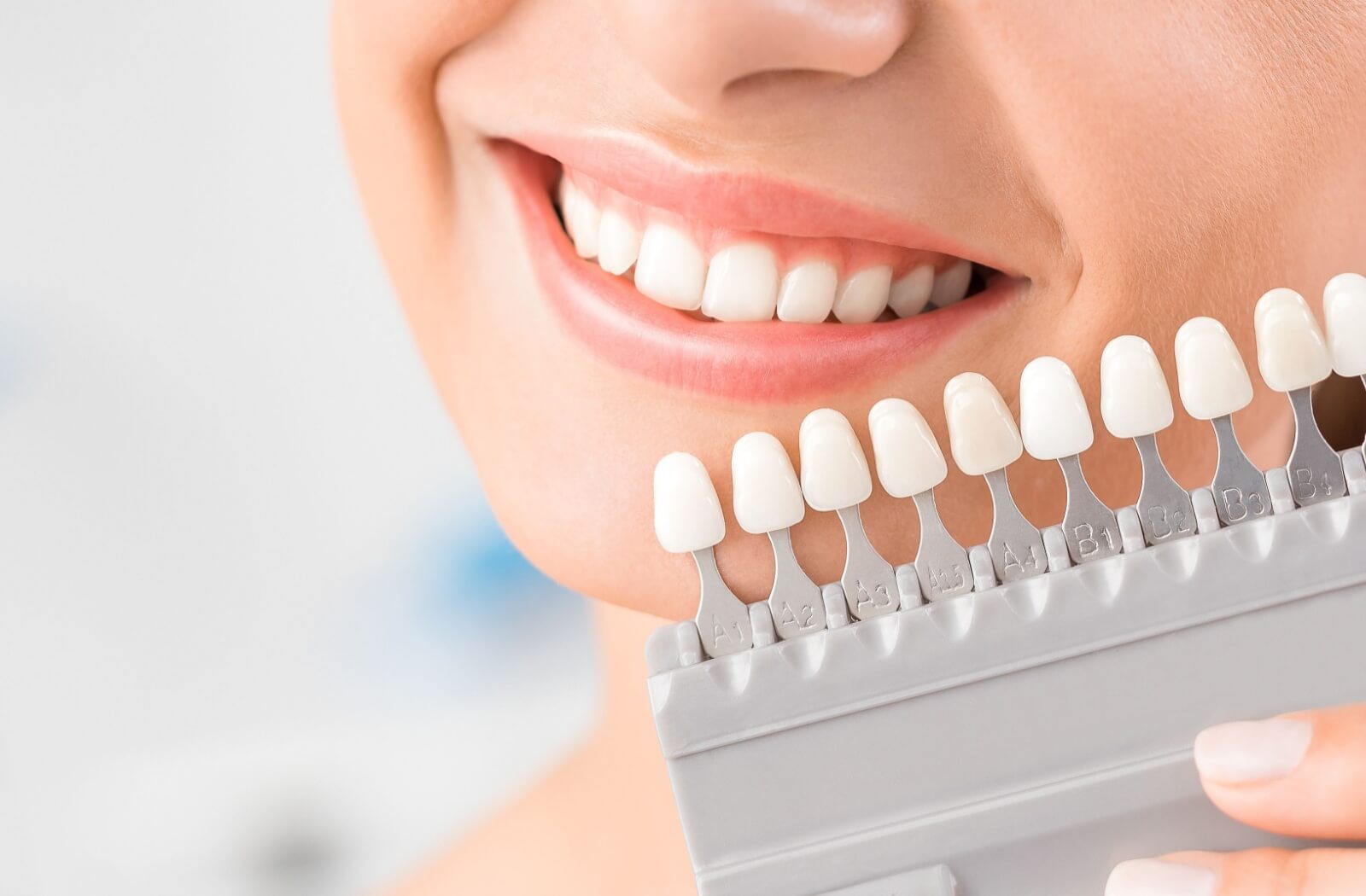How to Properly Clean Your Dentures

Just as you prioritize the health of your natural teeth, your denture's upkeep is equally vital. Implementing appropriate denture care can not only lengthen the lifespan of your dentures but also fortify your comprehensive oral health, similar to frequent dental check-ups.
You can clean your dentures in just a few simple steps:
- Remove your dentures
- Rinse under warm water
- Brush your dentures
- Soak dentures in solution or warm water overnight
- Clean your mouth
Types of Dentures
Dentures, our tailored false teeth solutions, come in a diverse range of shapes and sizes. They are removable and customizable to cater to your unique needs. There are four primary denture types to choose from:
- Full dentures: Ideal for those who have lost all their teeth in an arch. These custom-made dentures sit comfortably on your gums, creating a secure fit and a natural look.
- Partial dentures: Best suited when you're missing only a few teeth. Our partial dentures are anchored to your existing teeth using clasps, preventing the other teeth from shifting. They are removable for convenient nightly cleaning.
- Implant-supported dentures: Experience enhanced stability with dentures that are attached to surgically implanted dental supports. They offer a secure fit and can be treated as natural teeth when it comes to cleaning.
- Fixed bridge dentures: A bridge, a dental prosthesis, is used to replace several missing teeth in a gap. Your dentist will adjust your surrounding teeth to fit the bridge, which can be brushed like natural teeth.
Daily Care
Incorporating a routine for daily maintenance can enhance your denture's lifespan. With adequate care, it is possible for your dentures to serve you well for more than a decade. Nonetheless, as a general guideline, we propose contemplating a replacement approximately after 5 years.
Ensure to cleanse your dentures following each meal and before bedtime. It's never a good idea to allow food remnants to linger in the crevices, regardless of how delicious the food may have been.
Step 1: Removing Dentures
Remove your dentures gently, just like your dental expert demonstrated. Remember, shapes can vary with partial dentures, so stick to the directions strictly. Always be cautious and soft-handed with your dentures to evade bending or harm. We suggest implementing this over a soft surface, like a neatly folded towel, to safeguard them in case of a fall.
Step 2: Rinsing Dentures
Give your dentures a quick rinse as soon as you take them out to clear away food bits and other gunk. Warm water does the trick nicely. It's an easy routine to pick up post-meal and essential for preventing food remains from settling in.
Step 3: Brushing Dentures
Be sure to daily care for your dentures with a gentle scrub using a soft-bristled brush along with a delicate denture cleanser. Steer clear of common toothpaste, as it can carry rough particles that could wreak havoc on your dentures or cause unwanted discolouration. While your dentures might be crafted from resin, porcelain, or acrylic, it’s crucial to avoid household cleaners. Remember, these are going straight back into your mouth!
Step 4: Soaking Dentures
Preserving the quality and hygiene of your dentures is as easy as soaking them overnight in a suitable denture cleaning solution. Ensure the solution you choose is harmonious with your specific denture type, especially if yours encompass metal elements. Though some folks prefer a concoction of warm water and vinegar, be aware that this may pose a risk to metal clasps.
Step 5: Cleaning the Mouth
It's all about preserving that radiant smile of yours! Take the time to cleanse your gums, tongue, and palate each day prior to putting your dentures back in. Commonly, a brush with soft bristles and a mild rinse are enough to keep your mouth in top-notch condition.
Proper storage of your dentures is key to ensuring their longevity, incorrect storage could lead to warping or drying. Simply submerge them in tepid water or an appropriate soaking solution when they're not being worn. Be sure to avoid hot water at all costs as it may inflict damage on your dentures.

Long-Term Care
Keep a watchful eye on any alterations in your gums or jaw over time, as they can affect the fitting of your dentures. Make it a habit to frequently examine your dentures for any signs of damage. Should you experience any discomfort, don't hesitate to reach out to your dental professional since your dentures may require a little tweaking.
Remember, dentures that fit well do more than just provide comfort; they are a key factor in preventing complications like sores and infections.
Additionally, diligent maintenance ensures your denture's components retain their authentic look and stops them from developing an unpleasant smell.
Here are some tips so you can know when it may be time to get new dentures:
- Your dentures are cracked or chipped
- Your dentures hurt to wear
- The clasps are showing wear and tear
- They don’t feel snug or secure
Clean Dentures Lead to Good Oral Health
Maintaining the cleanliness of your dentures is a crucial part of your mouth care ritual. It averts the accumulation of plaque and harmful bacteria, enabling your smile to glitter radiantly whilst remaining sanitary. Though uncomplicated in nature, it demands a measure of attentiveness.
If you spot any irregularities or shifts inside your mouth, or if your false teeth sustain any damage, give Hayven Dentures a call without delay. It might be trivial, but routine inspections are a fundamental measure in sustaining your dentures and oral wellness
If you need additional information about denture care or need an adjustment, our team is ready to help. Easily schedule your appointment through our online platform.
Keep in mind, clean dentures are happy dentures, and a healthy mouth means a lifetime of radiant smiles.